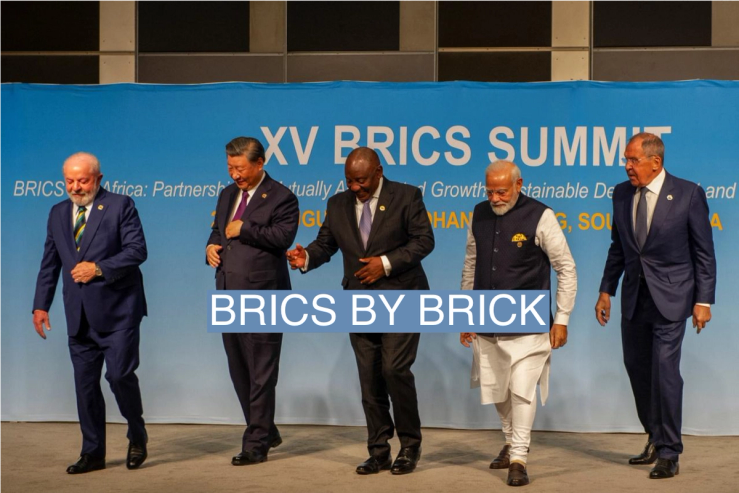The News
BRICS, the bloc of emerging economies, agreed Thursday morning to expand its membership. The coalition, which currently counts Brazil, Russia, India, China, and South Africa among its member states, has invited six more countries to join its ranks, including Argentina, Ethiopia, Egypt, Iran, Saudi Arabia, and the UAE.
SIGNALS
The uniting feature of BRICS is "grievance," Janan Ganesh argues in the Financial Times. The countries that comprise the bloc, as well as potential new memers, range from democratic to autocratic, from secular to religious, and from rich to poor. What binds them is that they are aggrieved against "Western primacy, against past slights," Ganesh writes. "And while grievance isn’t enough, it is an underrated force in politics and life."• 1
Financial Times, Resentment makes the world go round
The expansion follows a push from China's Xi Jinping to create a multipolar world that doesn't rely so heavily on the U.S. Over the past year, Xi has engaged in an "open and explicit push ... to turn the BRICS into a kind of 'anti-hegemonic' vehicle," Andrew Small, a senior fellow at the German Marshall Fund, told The Washington Post. China believes that "relations with the West are going to deteriorate and the future of relations with the world will be rooted in the developing world,"• 2 Small said.
The Washington Post, Six countries to join BRICS group; China labels expansion ‘historic’
Following expansion, BRICS also wants to end the dollar's dominance. As the group looks to decenter the West and the U.S. from global politics, it may opt towards de-dollarization and introduce a new currency to use for trade between the countries.• 3 But that may be easier said than done: "If you want it, you'll have to get a banking union, you'll have to get a fiscal union, you've got to get macroeconomic convergence," South African central bank governor Lesetja Kganyago told a local radio station last month. "Plus they will need a common central bank... where does it get located?"• 4
The growth of the bloc "shouldn’t be dismissed by G7 and other global north actors,” said Margaret Myers of the Asia and Latin America program at the Inter-American Dialogue. The BRICS line up now "represents a much more significant share of the global economy and global population.”• 5 In celebrating his country's addition to the group, Iran's president said it shows that "the unilateral approach is on the way to decay," an apparent swipe at the U.S.• 6


